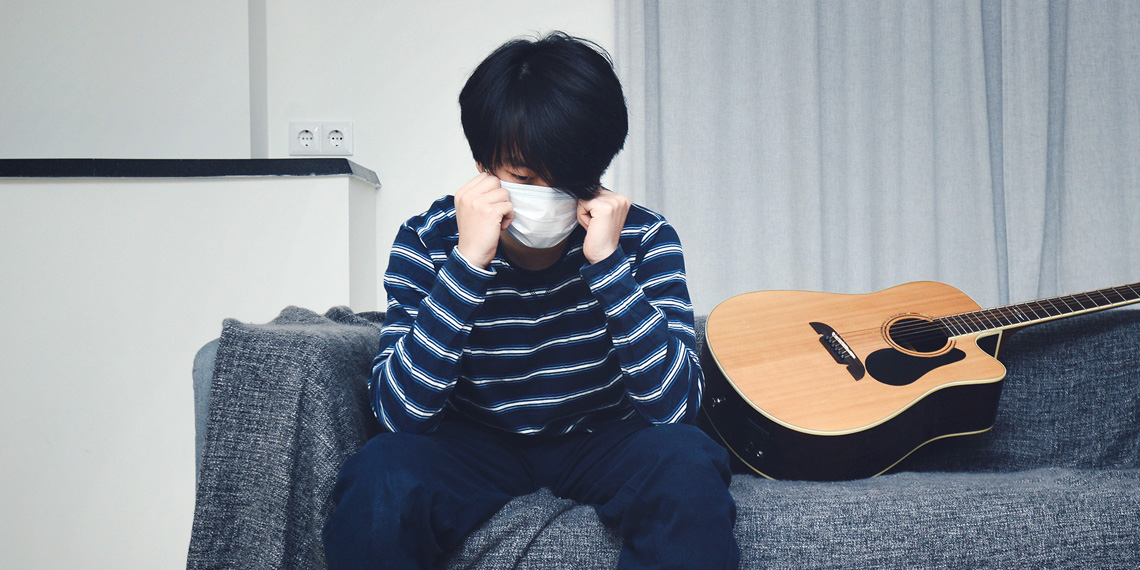The COVID-19 lockdown has forced societies to shut down, leaving many stuck at home with little to do. This lack of activity had negative consequences for mental health. Taking advantage of this unique situation, International Journal of Clinical and Health Psychology Explore why increased sedentary behavior leads to negative emotions in adolescents.
Sedentary behaviors are behaviors that expend minimal energy and occur while sitting, lying down, or reclining. Many adolescents participate in many sedentary behaviors, such as sitting at school, watching television, playing video games, and using mobile phones. is associated with many adverse physical health effects, including diabetes and cardiovascular disease.
When COVID-19 forced lockdowns and business closures, sedentary behavior increased as people had nowhere to go. Studies show that even after society returns to normal, children are still sitting for longer hours per day than before the pandemic. Previous studies have linked sedentary and sedentary behaviors to adverse mental health outcomes, but these relationships are poorly understood. This study aims to better understand the mediators that contribute to this relationship.
Liye Zou and colleagues used as a sample data from 1,065 students between the ages of 13 and 18 attending secondary or high school in Shenzhen, China. Participants were recruited online with permission from principals and parents. Students with psychiatric or neurological disorders were excluded from this study.
Participants completed measures regarding demographic information, BMI, number of siblings, physical activity, sleep quality, social support, depression, and anxiety. Gender differences emerged, with male participants reporting higher BMI, age and sleep quality, while female participants reported more sedentary time and higher rates of anxiety and depression.
The results confirmed previous studies by demonstrating that increased sedentary behavior was associated with increased negative emotions in adolescent participants. Sedentary behavior was positively correlated with sleep quality, depression and anxiety, and negatively correlated with social support. This study found that both social support and sleep quality are mediators in the relationship between inactivity and negative emotions.
This indicates that strong social connections and restful sleep are factors that prevent negative emotional consequences, even when adolescents have high levels of sedentary behavior.
This study has taken an important step towards better understanding the mechanisms underlying the negative emotional consequences of physical inactivity. This topic is especially important after the pandemic, when children and young people are increasingly participating in sedentary behavior.
Nevertheless, there are limitations to be aware of. One such limitation was that all measures, including sedentary behavior, were self-reported. This can lead to inaccurate information due to inaccurate memory recall and social desirability bias. Furthermore, due to the cross-sectional nature of this data, causality cannot be inferred.
“The current study results show that social support and sleep quality are important factors mediating the relationship between sedentary behavior and negative emotions in adolescents during COVID-19-related home confinement in Shenzhen. suggests that,” the researchers concluded. “Whether interventions aimed at increasing social support and improving sleep quality (e.g., physical training) can reduce the effects of sedentary behavior on negative emotions in adolescents remains to be seen. It should be investigated in future research.
the study, “The Association Between Sedentary Behavior and Negative Affects in Adolescents Under Home Confinement: A Mediator Between Social Support and Sleep QualityWritten by Liye Zoua, Ting Wang, Fabian Herold, Sebastian Ludyga, Weina Liu, Yanjie Zhang, Sean Healy, Zhihao Zhang, Jin Kuang, Alyx Taylor, Arthur F. Kramer, Sitong Chen, Mark S. Tremblay, M. . Mahbu Hossein.
